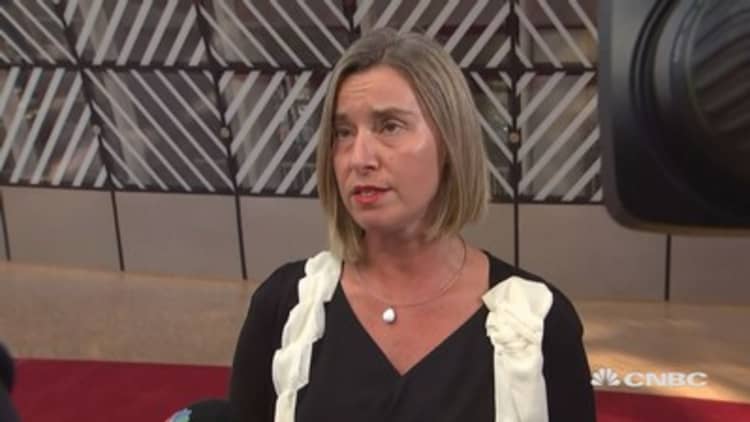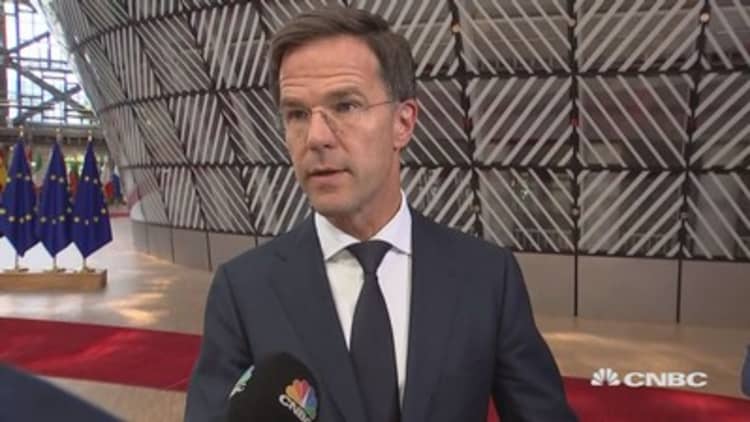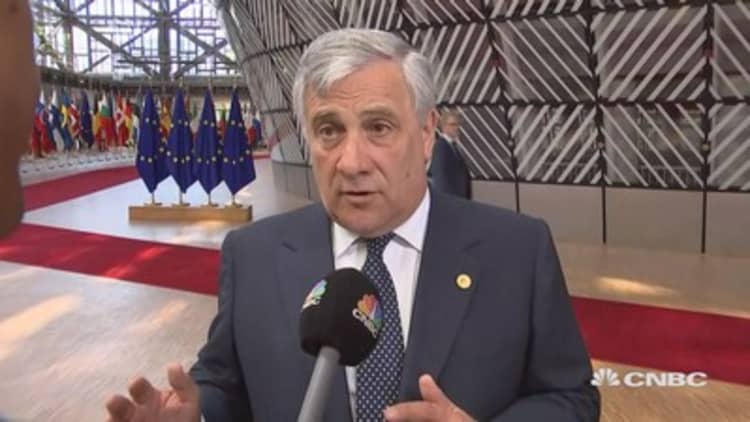
Senior European officials are proposing a new, European version of the Marshall Plan in an effort to resolve a political crisis over migration that Chancellor Angela Merkel has told German lawmakers is a "make or break" issue for the EU.
In an interview with CNBC ahead of a testy meeting involving all 28 of Europe's leaders, the EU High Representative for Foreign Affairs Federica Mogherini outlined about 1 billion euros worth of counter-migration initiatives in North and West Africa for which the European Commission is requesting funds.
Mogherini said the amount of money involved was not that significant in the context of Europe's total investment in Africa, but insisted these projects would have "an impact on the communities from where the migrants leave, in countries of origin and to help the countries of transit to dismantle the economy of the trafficking."
Earlier this week the Italian interior minister, Matteo Salvini, traveled to southern Libya, where he suggested that countries in the Sahel should play a far greater role in preventing migration flows into Europe. Salvini heads the far-right Lega party in Italy and has in part built his political reputation on criticism of EU migration policies, much to the irritation of officials in Brussels.
Over the weekend some of the Lega leader's harsher campaign rhetoric was included in a 10-point proposal submitted by Italian Prime Minister Giuseppe Conte at an emergency gathering of European leaders on migration. And now some of those ideas — including asylum processing centers outside the EU's borders — seem to be gaining ever more traction.
On the sidelines of the European Council meeting on Thursday, Dutch Prime Minister Mark Rutte told CNBC that spending in Africa would benefit others in addition to the Italians, who have already struck a funding deal with the coast guard in conflict-ridden Libya.
"We have to get to grips with this migration flow," said Rutte in Brussels. "That will mean that we have to work with countries in Africa like we did with Turkey."

European officials including Donald Tusk, president of the European Council, have highlighted the existing migration deal with Turkey as a successful model that could be replicated elsewhere. Under the terms of that agreement, Brussels pays billions of euros for Ankara to host and process asylum applicants, as well as to prevent economic migrants from entering EU territory.
And while the Turkish agreement has helped drastically reduce entry numbers into Europe from the Middle East, its success has left some European leaders acknowledging that the current storm over migration is driven more by politics than reality.
"The figures dropped down 95 percent," Luxembourg's prime minister, Xavier Bettel, said to CNBC, in reference to illegal migration figures on an annual basis. "We make [it sound] like it is a terrible situation on the borders, which is not the case."
But for politicians such as Salvini and Horst Seehofer, the Christian Social Union chief from Bavaria who has recently threatened Merkel's hold on power in Germany, the perceived problem is not just migrants arriving at Europe's borders, but those moving inside them.
Half a dozen leaders indicated to CNBC that they did not expect this week's summit to end in a major agreement that would overhaul the existing system, known as the Dublin regulation. But most said the only long-term solution would require cooperation among nations with often divergent priorities, if only to fund new and necessary measures.
"It's impossible at the national level to invest a lot of money," the president of the parliament in Brussels, Italian Antonio Tajani, told CNBC. "We need to work as European, because the immigration is not a German problem or an Italian problem, it's a European problem."


